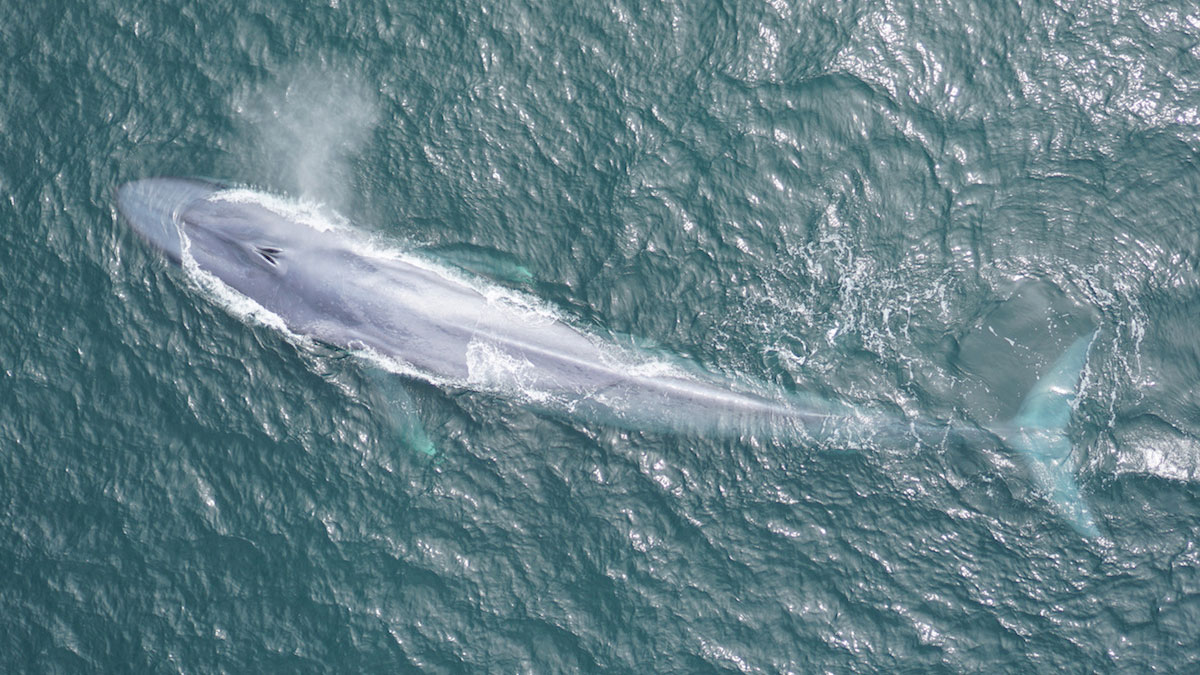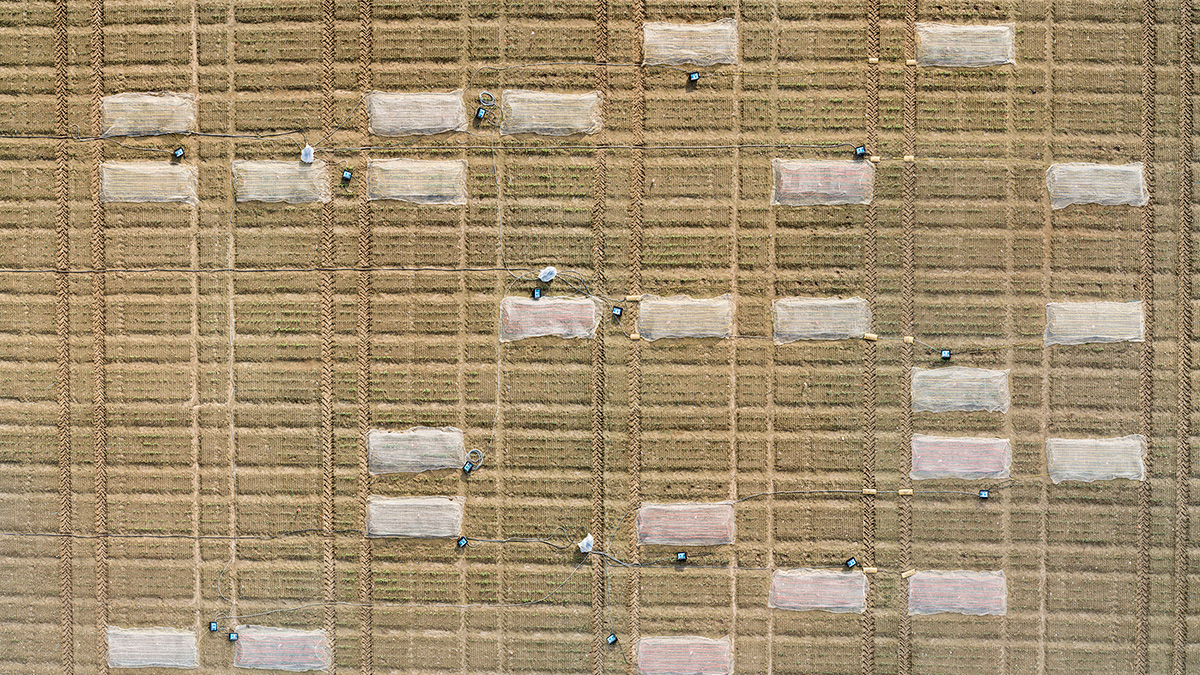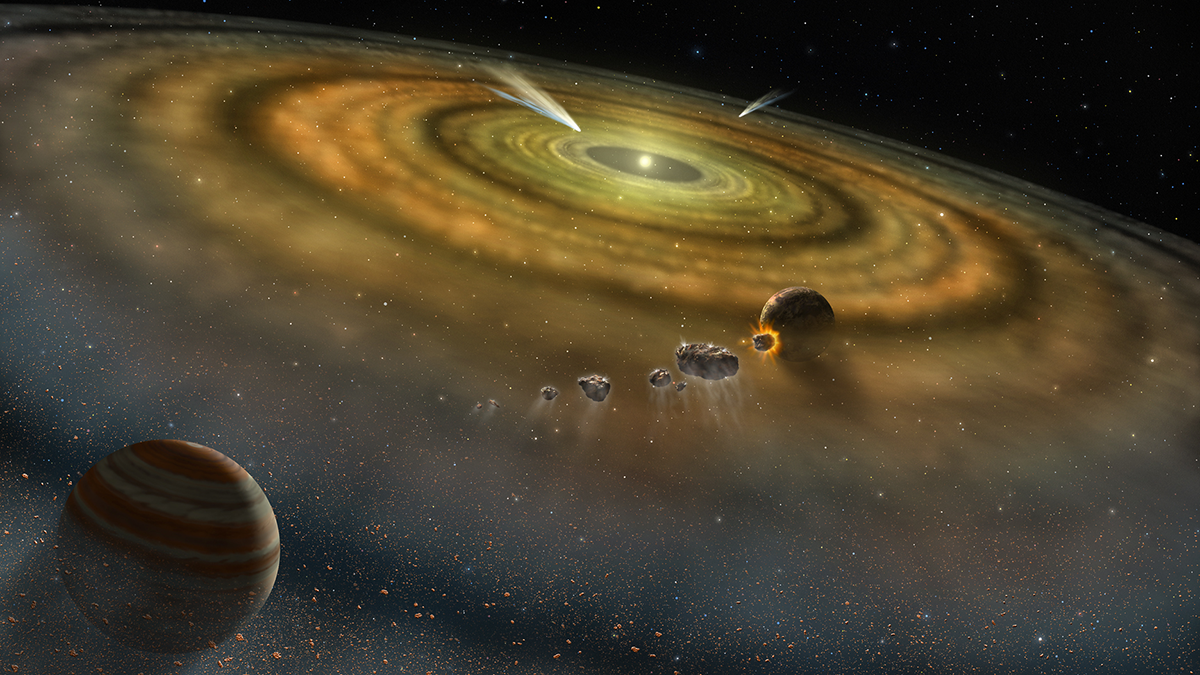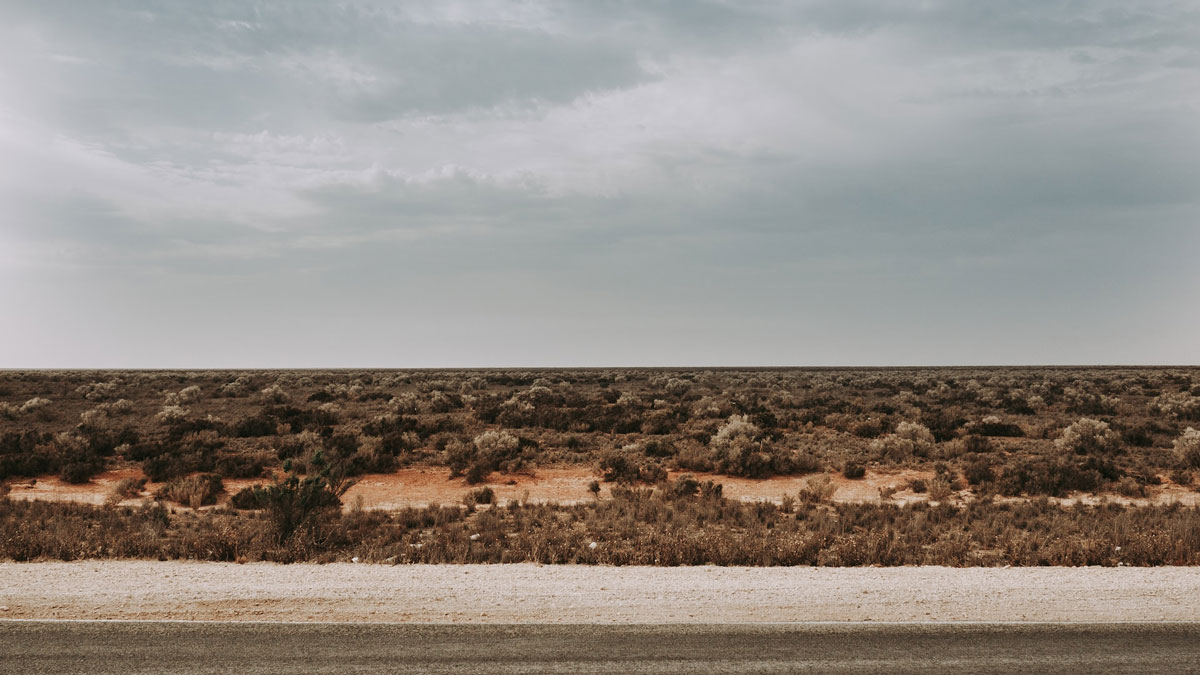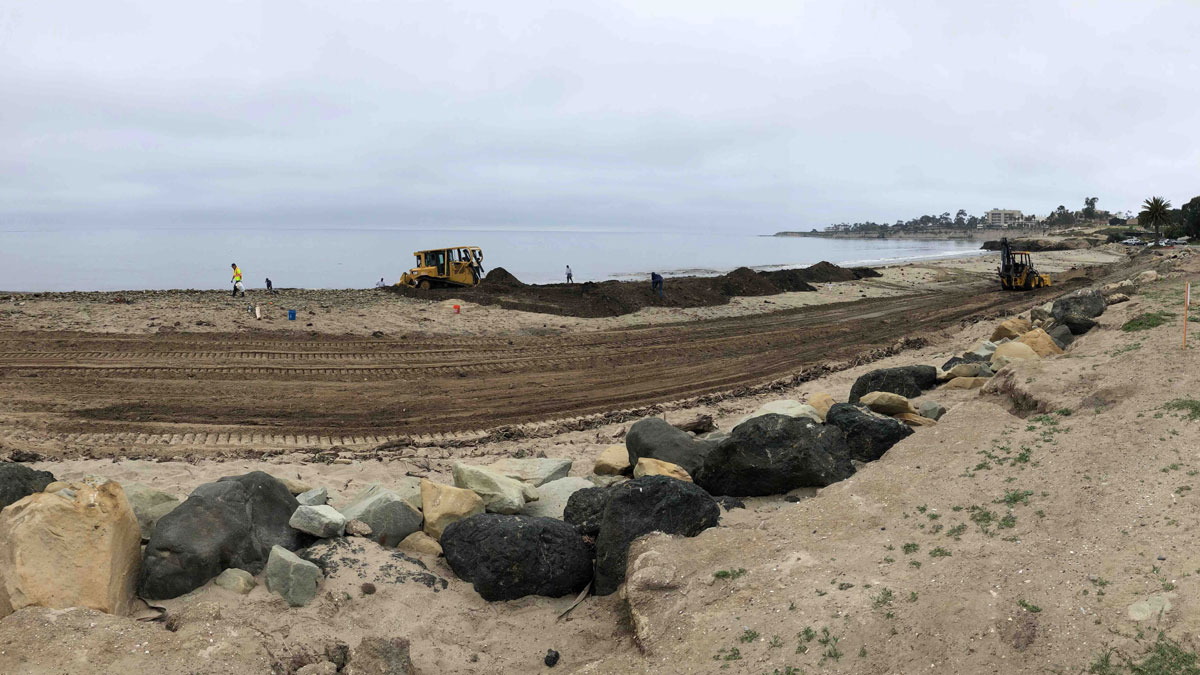New acoustic sensing technology is allowing scientists to track blue whale movements in real time, a breakthrough that could help save whales’ lives.
News
Stalagmites Show Evidence of Prolonged Droughts in India
A new study using oxygen isotopes reconstructs a prolonged record of India’s summer monsoons, showing much greater variability than modern data sets.
Warmer Winters Keep Crops Sleepy into Spring, Hurting Yield
Annual crops go dormant during winter. Frosty temperatures cue them to wake up—but the warmer winters brought on by climate change scramble the cold signal, hurting yield.
Isótopos de criptón proporcionan nuevos indicios sobre el pasado de los planetas
Para determinar cómo los elementos cruciales para el desarrollo de la vida llegaron a la Tierra, los científicos estudian los gases nobles. Actualmente, métodos mejorados traen consigo nuevos indicios a partir del criptón, el gas noble más enigmático.
Long-Gone Moon Could Explain Birth of Saturn’s Rings
Named Chrysalis, the moon could have disintegrated during a close encounter with the gas giant roughly 100 million years ago.
Satellites Get First Full-Year View of Arctic Sea Ice Thickness
The AI-based monitoring method may unlock data that could improve shipping safety and climate predictions.
Indian Cities Invest in Low-Cost Air Quality Sensors
The sensors help bridge gaps in air quality data due to critical shortages of government monitoring stations.
Rare Meteorites Shed Light on Diamond Formation
By studying meteorites believed to be remnants of the catastrophic breakup of a dwarf planet, researchers are learning how lonsdaleite, a particularly hard type of diamond, forms in nature.
A Mysterious Dome Reveals Clues to Australia’s Miocene History
The Nullarbor Plain has been relatively untouched by geological forces, leaving traces of the continent’s deep past.
Managing Mudslide Debris After Fires
California officials faced a conundrum in dealing with mudslides after the Thomas Fire.

